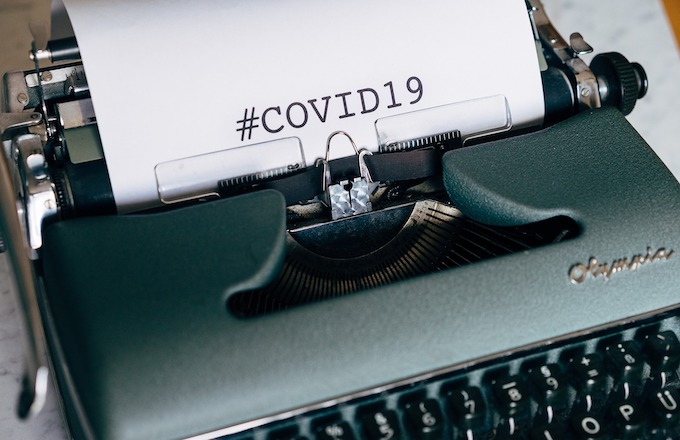18+ Covid-19 was the best thing that happened to my daughter. Her cocaine supply dried up, and she discovered she was an introvert. She turned twenty-four on the first of May, a May Day child without a cause. It was not always so. Dux in Year 10 and a black belt in taekwondo, before she fell prey to anorexia.
We called it Ed, short for "eating disorder". Then she began to eat again, but her mind had changed. Memories, emotions, family bonds became confused, priorities and values open to interpretation. That was seven years ago.
"I'm a survivor," she said proudly as if that was an aspiration. I sat opposite her on the verandah, the cool autumn night air relieved the heat of tension. The Shih Tzu terrier lay on my lap, comfortable and comforting. She puffed desperately on a cigarette, pretending to be grown up and in control. I watched her and fought back the swelling tears.
"What's the matter?" she asked.
Silence. I did not trust what I would say. Then, "The one person that I am really concerned about is you."
"Why?" she asked, puzzled and annoyed.
"If you don't know that worries me even more."
She put out her cigarette and went inside. The opportunity to connect was lost. I sighed and looked over the back fence at the reserve, the footpath and the road beyond.
We lived near an industrial estate with family housing abutting either side. When we first moved in, one summer night we heard shouts and the screeching of tyres on the bitumen coming from the house across the road. We ran out to investigate.
"I hate you, mum!" the shout was half-cried, half-screamed, loud and clear in the stillness and there was a flash of something shiny being waved around, and the murmur of a response. Terrified, we rang the police.
That scene stuck in my memory, and the words followed me over the years, "I hate you, mum." As a seventeen-year-old, she would make her way along the footpath to the back gate irritated and defiant and wrapped in an impenetrable cloak of angry resentment. She came and went as she pleased and retaliated if questioned.
At twenty-three she was a drug dealer's mule dropping off parcels of white powder or manufactured happy pills to clients. The work suited her, fitting hand in glove with her bar work hours. She also got a small cut of the merchandise.
The drop-offs were late at night and done on her way home, wherever that might be. The night is perfectly suited for criminal activities and the streets in this public service town midweek are deserted then. The night also hides the unlicensed driver, the drugs, and the badly-lit back streets hid the unregistered car she used to deliver the drugs of choice.
At age two, it was in the late evenings when exhausted from the relentless daily routine that comes with having a toddler, and we were beginning to fall asleep that the phone calls started. He drove a taxi on weekends to bring in some extra cash. It was the same each time, a drunken group of mates feeling happy and horny wanted a taxi to take them to the brothels in the big city. The small country town did not have those services.
So he got up and dressed and headed out to collect them. He returned an hour later, exasperated he remarked, "They wanted me to wait for them. I told them to find some other fool to take them home."
It was also late at night when she could not sleep that her father hearing her restlessness would get up and go to her. "Come on, let's go for a walk."
I could hear her eagerly taking up the offer. It seemed to be even more special when it was raining as they put on their gumboots and sharing an umbrella they went out the door laughing. I envied their closeness, the ease with which her father knew exactly what to do. I now wish that it had meant something to her, enough to stop her leaving.
Lockdown put nightlife on pause. Because of the lockdown, the pubs and clubs closed, and restaurants shut their doors or reduced their seating and waiting services. She had no income for her drugs. The country was in lockdown, and the government had at last successfully stopped the boats — the right ones. She got a job as a contractor in a call centre, it paid $25 an hour, too little she said. Soul destroying work; I agreed.
The universities closed for face to face teaching, and students navigated the online systems.
I said, "It is an ideal time now to study online."
"Yeah, I can't afford it," she replied.
I think of the cost of her cocaine habit and the cost of a semester's worth of study. Education is expensive, and she had other priorities.
When she was born, we made plans to save for her future, setting aside money we did not have, for a future we did not own. Twenty years of savings raised ten thousand dollars towards her tertiary studies. She accessed all the funds without achieving a result. I agreed education was expensive.
LOVE WRITING FICTION?
Tall And True is an online showcase and forum for writers, readers and publishers.
A friend told me it takes three months for the drug to leave the system and the body and the mind to readjust to a normal state of being. The lockdown is approaching three months. The restrictions on movement and gatherings are easing. Lockdowns are becoming a thing of the past, or so it seems, and people are taking advantage of their revised freedoms.
Time enough, perhaps for her to recover from her addiction and to return to some form of sanity, I recognise. Because there is little enough else I recognise in her.
It is with anxiety that I wait as Covid-19 starts to recede and the hospitality industry incrementally re-opens, borders open and the boats start arriving again. The pause button is still on, and I watch through the black curtains for the shadows to start moving again and for someone to hit "play". I pray.
© 2020 Gianoula Burns
With thanks to Markus Winkler from Pixabay for the COVID-19 image.
I have written poetry for many years and have only recently ventured into writing short stories. I have had a short story published in the literary journal Meniscus (Volume 8, Issue 1, 2020).
It has been a tough year and for me, coming after a tough seven years grieving for a daughter with a mental illness.
The story is not fictional but an account and reflection of the impact of Covid on my daughter and our relationship.

Gianoula Burns (nee Xenos) is an Australian-Greek, born in Greece but raised and educated in Australia. Gianoula grew up in Sydney and now lives and works in the Canberra region. Gianoula writes about the impact of experiences on one's life, emotional development and our interactions with people.



